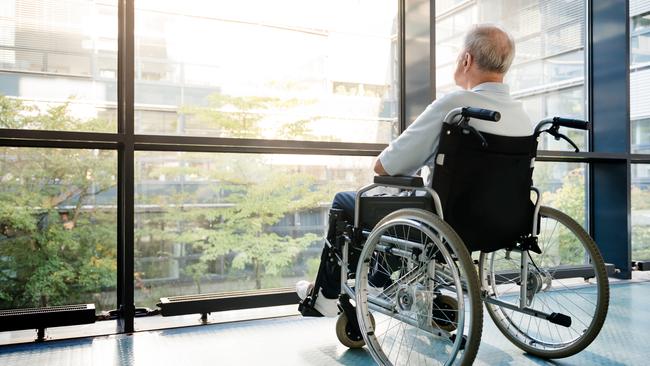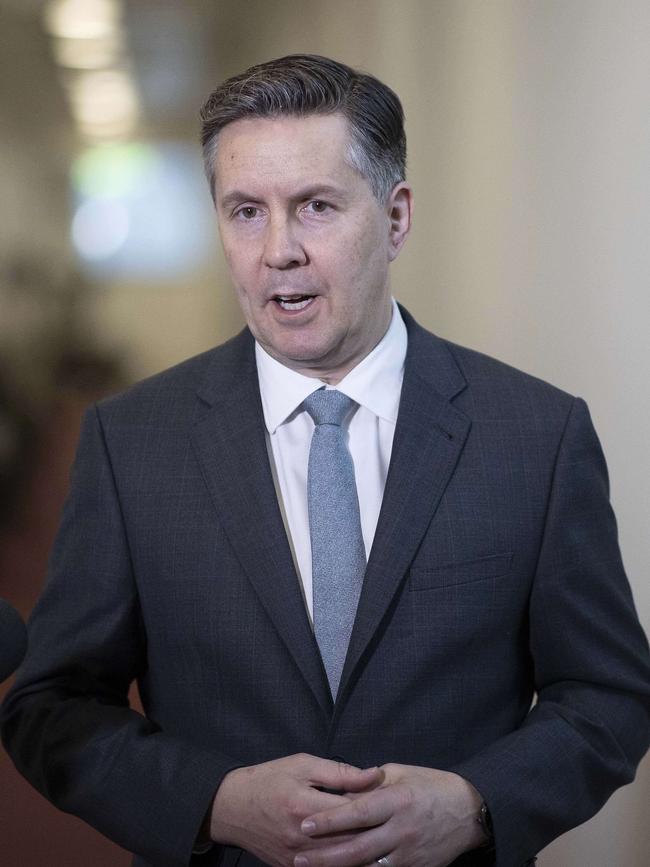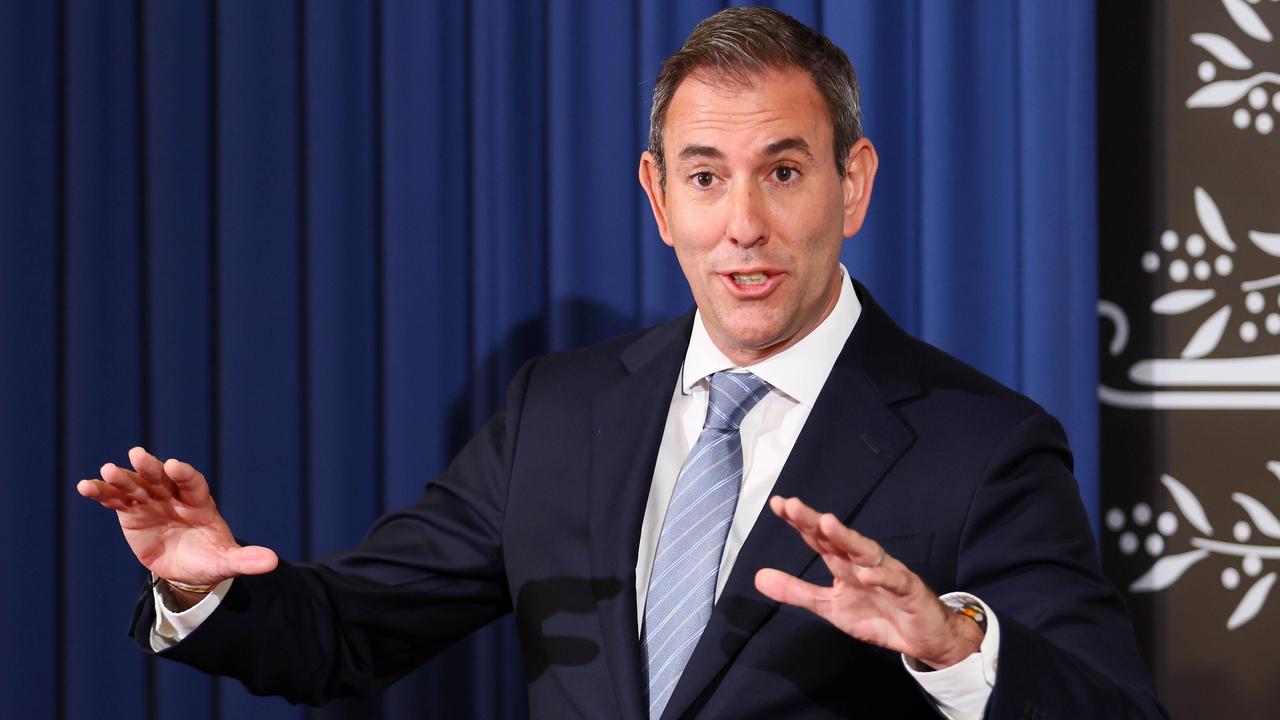Federal Budget 2022: TV chef’s $5m cash boost slammed
TV chef Maggie Beer’s $5 million budget windfall to improve food in aged care homes has been blasted by dietitians. See why.
Federal Budget
Don't miss out on the headlines from Federal Budget. Followed categories will be added to My News.
TV chef Maggie Beer’s $5 million Budget windfall to improve food in aged care homes won’t guarantee nutritious meals for residents, dietitians have claimed.
Labor stuck to its election pledge to provide extra funding for the Maggie Beer Foundation, which provides training videos for chefs and cooks in the sector.
The culinary icon has long pushed for better food in aged care.

But Dietitians Australia CEO Robert Hunt said while Maggie Beer’s input will “provide great culinary education and training to aged care chefs and cooks”, if Labor wants to make a difference on food, practising dietitians are the answer.
He said the only way to improve standards and reduce malnutrition – estimated to affect around half of all residents – is to pay for experts to oversee menus.
The peak body also wants to see every resident undergo a malnutrition test.
“While we welcome the investment that will provide great culinary education and training to aged care chefs and cooks to prepare tasty food, we still can’t be guaranteed the food will be nutritious,” Mr Hunt said.
“The critical missing link in this is accredited practising dietitians.
“We need both chefs and dietitians funded if we want to turn the tables on malnutrition in Aged Care,” he said.
The Royal Commission into Aged Care Quality and Safety heard some providers were spending less than $6 a day per person on food.
A government report last year found that despite the $10 a day supplement the Morrison government introduced after the findings were made public, around 50 homes were still only spending $6 a day.
It comes as it was revealed fraudsters ripping off the National Disability Insurance Scheme to the tune of $6 billion annually will be the target of a new budget crackdown.
Australian Criminal Intelligence chief Michael Phelan said there was evidence that fake NDIS clients were being been created and invoices paid for non-existent services.
He said some valid providers were also charging clients for more hours of care than they actually delivered.
The new $138 million Fraud Fusion task force “will help defend the scheme from crooks and help deliver our pledge to crack down on NDIS fraudsters,” Social Services Minister Bill Shorten said.
The budget forecast the cost of the scheme would balloon to $52 billion by 2025-26.

It committed to fund the employment of an additional 380 permanent staff to ensure the National Disability Insurance Agency (NDIA) could better support people with disability.
In-house experts will be used to help people draw up care plans instead of external consultants who often had little knowledge of the conditions suffered by NDIS clients or their specific needs.
With the government facing nearly 4000 Administrative Appeals Tribunal actions from NDIS clients who have had their packages cut, the budget will spend $5.8 million on an Alternative Dispute Resolution Pilot to direct these claims away from the legal system.
Mr Shorten said this would achieve fairer, faster and better outcomes for NDIS participants and “will help people with disability to resolve disputes over NDIS decisions, helping to clear the Liberals’ legacy of thousands of appealed NDIS decisions at the Administrative Appeals Tribunal”.
There is also an additional $6.6 million for participants to access advocacy and legal assistance.
The budget also funds an independent NDIS Review led by a panel of experts and people with disability to create a road map for improving the NDIS, rebuilding community trust and ensuring the scheme’s sustainability so that future generations.

The Albanese Government has moved to appoint people with disability to the management of the NDIS including Paralympian Mr Kurt Fearnley who has been made National Disability Insurance Agency (NDIA) Chair, it has also increased the number of people with disability on the NDIA Board to its highest ever number.
“Delivering these important election commitments shows the Albanese Government will
not waver on its promise to get the NDIS back on track,” Mr Shorten said.
MAJOR AGED CARE REFORMS
Aged care residents will be guaranteed a nurse on site and receive a mandated 215 minutes of care a day under sweeping reforms to the troubled sector funded in the budget.
A new national registration scheme for personal care workers will include a code of conduct and ensure care workers are proficient in speaking English.

While the budget assigns no actual dollar figure, the government has pledged it will fully fund a pending Fair Work Commission pay rise for 300,000 aged care workers.
Elderly people receiving care in their own homes will have their administration and management fees capped and exit fees will be banned under other reforms in the budget.
Almost $10 million has been set aside to fund a dedicated Aged Care Complaints Commissioner.
Nearly $40 million will be spent on a new independent Inspector-General of Aged Care that will target systemic issues to improve outcomes for older Australians.
Health and Aged Care Minster Mark Butler said the measures directly addressed the Aged Care Royal Commission recommendations and the neglect that we saw under the former Coalition Government.
“Older Australians deserve respect and dignity in aged care and this Budget takes

Advocates in the sector say budget promises including funding for qualified nurses on site in every residential aged care home 24 hours a day, seven days a week, at least 215 minutes of care per resident per day, better food, a pay rise for aged care workers and more home care packages will help fix the crisis.
United Workers Union Aged Care Director Carolyn Smith said the budget funding “will give aged care workers confidence their voice has been heard, and years of neglect of residents and aged care workers are being addressed”.
“The Federal Government’s promise to fund the work value case represents one of the major opportunities to improve wages in the aged care sector, and will at least in part address the rush to the door that has been occurring among aged care workers,” Ms Smith said.
However she said Labor will be “a big mountain to climb” to retain and attract aged care workers.
The Committee for Economic Development of Australia (CEDA) said that at least 35,000 extra aged care workers will be needed each year to fulfil the promises.
She said Covid is still an issue for workers, with more than 200 facilities currently facing an outbreak, and more than 4000 Covid-related deaths have occurred in aged care.
It follows a United Workers Union survey of 1000 workers earlier this year which found that 75 per cent of workers wanted to leave the sector within five years – with a quarter of those workers saying they wanted to leave as soon as possible.
National Seniors Australia chief advocate Ian Henschke said he wanted to see more incentives encouraging older people and pensioners to work in the industry to ease labour shortages.
Last week one employer Home Instead, which provides home care, said it would love to take on another 1000 employees in the next three to six months.
It called for more over 65s to sign up for aged care work.
Mr Henschke said National Seniors Australia has recommended a mature age traineeship program to help meet these urgent frontline workforce needs, and a downsizing incentive to help people stay in their own home and out of residential aged care.
“While the home care wait list has significantly improved over the past three years, it’s in danger of going backwards if there are not enough workers to meet demand,” Mr Henschke said.
“National Seniors would like to see targeted measures to help people receive in-home care and eliminate the wait list.”
The Older Persons Advocacy Network welcomed moves to provide more home care packages, as more people choose to stay in their own homes.
“They should not have to wait for more than four weeks for care,” a spokesman said.
He said people have died waiting for home care packages.
He also wants to see a strong regulator and a strong pipeline of nurses coming through.
More Coverage
Read related topics:Cost of Living




